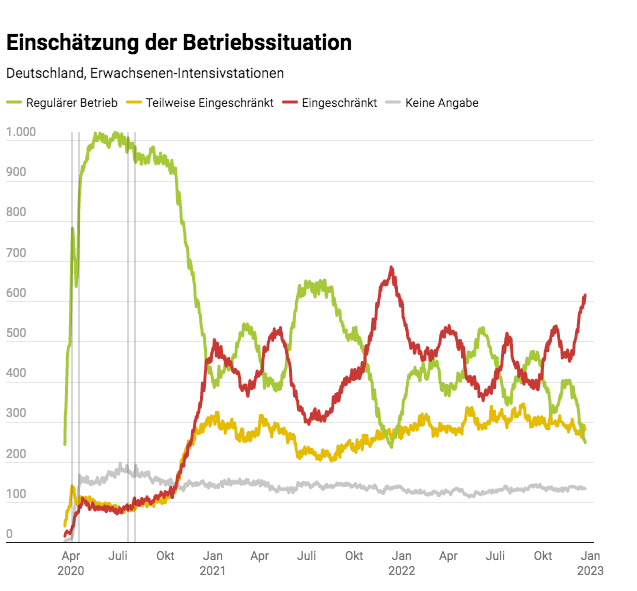Lockdown Now!
The case for shutting you all up in your homes.

Dear Reader,
Here is a statistic that might surprise you:
More people died in October of this year than in either of the Covid-plagued Octobers of 2020 and 2021. Excess mortality in October 2022 was incredibly high - 19 percent above the average for the previous four years. Or, put another way, 15,000 more people died than would have been expected based on a four-year average that included two (!) pandemic years. (Source: The National Statistics Office)
In November, there were similarly high numbers of deaths. Although these were more in line with those seen in 2020 and 2021, they were up 18 percent on 2018.
While there is not much direct evidence for why this has been happening, it seems fairly clear that it is related to the fact that the flu and other respiratory illnesses have struck at an unusually early point in the winter.
"I think the most obvious explanation is that we're seeing a relatively early wave of infectious disease this year,” Jonas Schöley, a research associate at the Max Planck Institute in Rostock, told broadcaster ARD.
While Covid deaths were higher this October than in the previous two years, “they only explain about half of what we saw,” Schöley said.
Another surprising statistic: there are fewer free intensive care beds on the national register today than at any point since March 2020. There are currently 1,760 free intensive care beds nationwide. A year ago today that number was 2,760. On December 21st, 2020, a positively luxurious 4,000 free beds were recorded in the register.
A couple more statistics from the intensive care register: Only 257 of Germany’s intensive care wards are running regular operations at the moment. 606 have said their operations are limited - and the trend is upwards. There has only been one point in the last three years, in mid-December of last year, when the situation was worse.

Anecdotal evidence suggests that doctors are having to call colleagues in other cities to try and find free beds for patients.
Young children, who haven’t been properly exposed to common cold viruses in recent years due to face masks and other Covid measures, are particularly likely to end up in intensive care.
“The situation is catastrophic,” one doctor from a children's ward in Bavaria told a local broadcaster. “Hospitals are now having to place children in adult or intermediate care wards where they don't belong.”
Compounding the pain for German children is the fact that pharmacies are running out of cough and fever medication. Production of these drugs, which are no longer in patent, was moved out to China in recent years due to their low profit margins. But now, supply chain issues caused by China’s disastrous Covid management mean that the drugs aren’t being delivered.
The crisis on intensive care wards means that elective treatments have once again being postponed. People waiting on hip or knee replacements have been told to “grit their teeth” and wait things out.
Perhaps you’ve already sensed what I’m getting at here.
By any objective measurement, the situation is at least as bad as in the previous two winters.
People are dying in larger numbers than would usually happen, hospitals are under huge strain (on the “point of collapse” if you believe the media), and source of this scourge is infectious diseases that we pass on when we meet other people.
Isn’t there only one tried and tested solution to such a crisis?
Surely the opinion pages of German newspapers must be full of comment articles telling us to show a bit of solidarity (and urging the government to fine us if we don’t) by staying at home fo the next two weeks (i.e. until Easter)?
Scientists of all shapes and sizes must surely be warning that, if we don’t act now, we will regret it.
Well-meaning folks must be posting selfies from their couches under the hashtag LockdownJetzt… Health Minister Karl Lauterbach must be touring the country’s talk shows to warn about killer flu variants…
Yes, you’ve guessed it. None of those things are happening.
The word lockdown has silently, imperceptibly become taboo.
Take the head of the Intensive Care Register, Dr. Christian Karagiannidis.
Back in March 2021, when there was still a comparatively comfortable 3,500 beds free, he said that “we argue strongly for going back into a lockdown right now.”
Karagiannidis’s diagnosis now is similarly alarming. “I haven't experienced anything like this,” he said this week. But his prescription is very different. Instead of advocating measures that would help stop the spread of disease right now, Karagiannidis wants structural change. Too many nurses are going into retirement, he told the Wochentaz. What is needed is “migration, and lots of it.”
(As a footnote here, people who wanted to discuss the lack of hospital staff last year were derided as a “Covid deniers.”)
Others have simply gone silent.
The most famous of all German experts, virologist Christian Drosten, once tweeted avidly about the urgent need to lock the place down. He hasn’t tweeted since July. In a rare interview given to Die Zeit last month, Drosten insisted that all the advice he’d given so far had been right, but he had nothing to say about the situation on hospital wards right now.
But then Drosten is a specialist in SARS-viruses. Perhaps he just doesn’t feel qualified to talk about influenza and other respiratory diseases…
Or perhaps a mysterious and not altogether consistent mood shift has taken place that means that attitudes that people were hounded out of polite society for expressing last year are now back in vogue.
Suddenly we don’t need to feel guilty about those dirty thoughts that pop into our head that tell us ‘kids all have to go through it at some point’, or ‘well, something was going to get her in the end’ when an elderly auntie succumbs to a flu infection.
The idea that the whole of society should be brought to a halt to slow down viruses that are harmless to most of us seems ridiculous now.
What terrible people we have become again…
This article is free for everyone to read. Please consider sharing it to help me grow my readership.
You can also sign up for membership to support the newsletter and to receive additional content. Get a free trial for a month. Cancel anytime.



Cracker of an article!